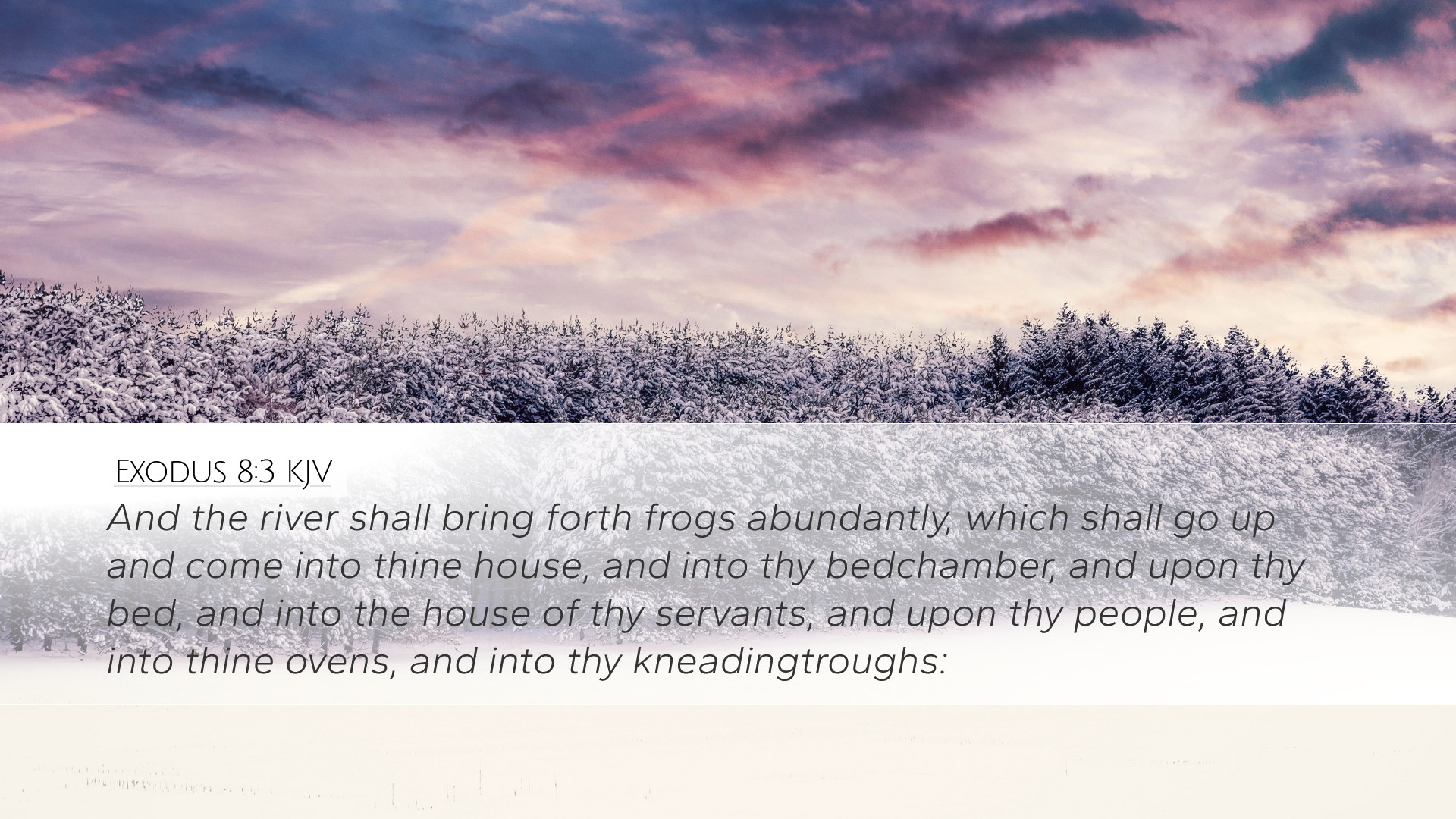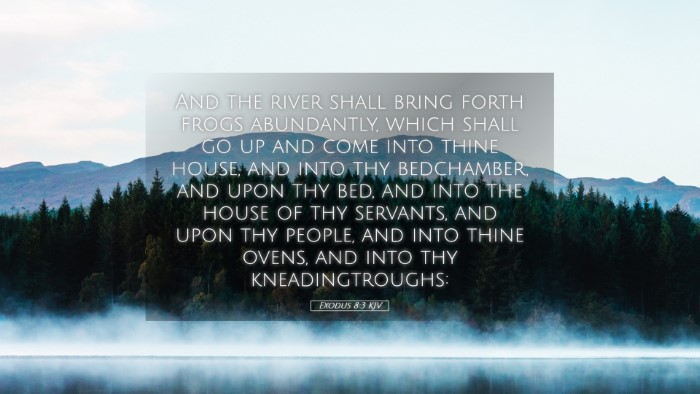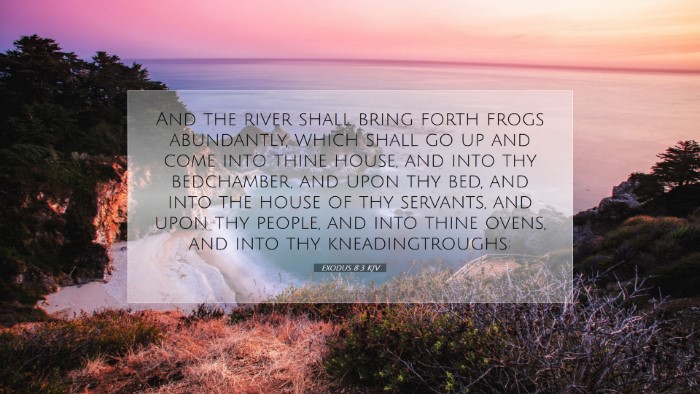Introduction
This verse marks the second of the ten plagues inflicted upon Egypt, reflecting God's sovereignty over creation and His power to bring judgment upon oppressive nations. The plague of frogs, like others, serves multiple purposes: it acts as both a judgment and a means to demonstrate the impotence of Egypt's gods.
Insights from Public Domain Commentaries
Matthew Henry's Commentary
Matthew Henry interprets this event as not merely a physical affliction but a spiritual lesson. The proliferation of frogs serves as a reminder of God's control over nature. In his view, the mention of "thy bedchamber" signifies the personal impact of God's judgment, indicating that no aspect of life is exempt from His reach. The frogs invading every facet of domestic life symbolizes the pervasive nature of sin and disobedience, suggesting that the consequences of straying from God's will will intrude into the most private and secure places of life.
Henry further suggests that the Egyptians had worshipped frogs, which implies that this plague was a direct affront to their pagan practices. It illustrates God's power to thwart the false beliefs of the Egyptians, showing that He alone is supreme. The frogs not only invaded their homes but also placed the Egyptians in a position of helplessness, reminding them that true worship must be directed to the One true God.
Albert Barnes' Commentary
Albert Barnes elaborates on the practical implications of this plague. He points out that the overwhelming presence of frogs would disrupt daily life in a significant manner, affecting both the personal and communal aspects of existence. The invasion of frogs into ovens and kneading troughs suggests a loss of hygiene and a threat to food supply, emphasizing God's ability to strike at the economic heart of Egypt.
Barnes indicates that this judgment was not random; rather, it was methodically designed to expose the Egyptians' reliance on their idols, of which frogs were significant. He notes that the purpose of the judgments was to disturb the religious and social structure of Egypt, forcing the people to reconsider their beliefs and practices in light of the manifestation of Yahweh's power.
Adam Clarke's Commentary
Adam Clarke offers a detailed linguistic and cultural analysis of the text. He highlights that frogs were often associated with fertility in the Egyptian pantheon, yet here they become an instrument of divine retribution. Clarke's commentary emphasizes the irony present in the plague; what was once a symbol of life and abundance becomes a source of distress and death in abundance.
Clarke also comments on the magnitude of the plague, noting that the sheer number of frogs would have overwhelmed the senses, creating chaos and disorder. He suggests that this chaotic invasion would serve as a metaphor for the spiritual chaos that ensues when one turns away from God. The invasion of frogs into private spaces further emphasizes that God's judgment can penetrate even the most sheltered areas of life.
Theological Implications
The account of the frogs in Exodus 8:3 holds significant theological implications for pastors and theologians. It serves as a reminder of the nature of God's judgment and His desire for repentance and obedience. The characteristics of the frog plague highlight God's patience and the extensive nature of His call, as He brings multiple signs before Pharaoh, seeking recognition of His authority.
The seriousness of sin is underscored by the visuals of this plague; it illustrates that rejecting God leads to disorder and chaos, both personally and collectively. The encroachment of frogs into all areas of life serves to convict believers and non-believers alike of the necessity for turning towards God lest they experience similar judgments in various forms today.
Application and Reflection
For contemporary readers, Exodus 8:3 challenges individuals and communities to reflect on their faith, idolatry, and obedience. The symbolism of the frogs reminds believers to examine areas in their lives where they may have allowed distractions to infiltrate their spiritual lives. Just as the Egyptians faced chaos from a divine act, modern believers are urged to recognize the spiritual chaos that sin creates in their own lives.
Pastors and church leaders can use this commentary as a springboard for discussing the importance of holiness, repentance, and the dangers of complacency. As a practical takeaway, congregations can be encouraged to cleanse their lives of distractions that impede their relationship with God, invoking the enduring truth that God desires to dwell intimately within the hearts and lives of His people.


